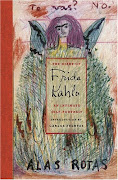The very process of writing, because of its privacy, and concreteness, forces understandings. Yet everyone can do it. And it is so gentle, despite the fears, hesitations and uncertainties that often accompany it.- Gillie Bolton and Morag Styles in The Uses Of Autobiography, ed. Julia Swindells (London: Taylor, 1995): 197.
What is Life Writing?
Life writing includes autobiography and biography in many modes. For example, autobiographical writing includes:
- family and childhood memoirs;
- accounts of life by well-known identities such as writers, sports people or politicians, or those who have lived through extraordinary times;
- confessional writing, including poetry;
- political testament – accounts of persecution;
- certain types of travel writing;
- accounts of ‘rapture’ and spiritual experience;
- and even essay writing.
Many different media are also involved: examples of prose, poetry, performance, radio programme, interviews, film or television, newspaper features may all be described as autobiographical.
One of the attractions of autobiography is our sense of access to a real person who has recorded their actual feelings and experiences. Yet, we are also aware that that most people’s memories can be both fallible and inventive (patched together from stories they have been told and ‘filled in’), and that an autobiographer uses similar rhetorical devices to a fiction writer.
And we also sometimes speak of ‘autobiographical fiction,’ fiction based around the author’s life story.
Some historians and theorists suggest that autobiography and the novel are both genres based around interest in interiority and the self, and are closer than is generally realised - there is not necessarily ‘a clear distinction between the confession and the novel’ (James Clifford & George E. Marcus, eds. Writing Culture: The Poetics and Politics of Ethnography. Berkeley: U of California P, 1986: 235).
Another issue which arises in thinking about life writing is how much is someone a ‘product of their time.’ But is the life of a person a window on the times, or the times a window on the life of a person? This is a matter which is always paradoxical because, as one theorist writes in a paraphrase of the philosopher, Kant:
Concepts of the outside world without self-observations are empty: self observations without concepts (of external reality) are blind. (Clifford & Marcus, 1986, 166).
There are also many kinds of biography and many different ways of writing, or compiling, biography. Examples include:
- book accounts of public figures or memorable family members;
- magazine profiles;
- historical writing based around key figures;
- anthropological and psychological studies;
- evidence given in a court room;
- documentary biography on radio or television;
- poems and dramatic monologues
Questions of how to balance author’s commentary and quotation from original sources are always to the fore in biography, as are questions about causality – why he or she acted in the way they did. Also important are ideas or assumptions about the relationship between individuals and history.
And, often, as with autobiography, we as readers question the motivation of the author as we read. Why is he/she interested in this person? What is he/she showing us? It is also often said that a biographer must like the person they are writing about. It is true too, in a broad sense, that all writing will be a product of the biographer’s present – the biographer is bound to focus on aspects that are significant to her/him in her own time.
What about Studying Life Writing?
To produce biographical or autobiographical writing you do not need to study the whole of the history of these genres or to define them definitively. In this course you will
- Read extracts and books in order to identify how writers produce exciting and engaging writing that resonates for you as readers, and also to find models for the kind of life writing you want to produce.
- Attend lectures discussing examples of, and ideas about, life writing.
- Carry out regular writing exercises, and practise giving and receiving constructive criticism.
Tuesday
Course Description
Subscribe to:
Post Comments (Atom)




No comments:
Post a Comment